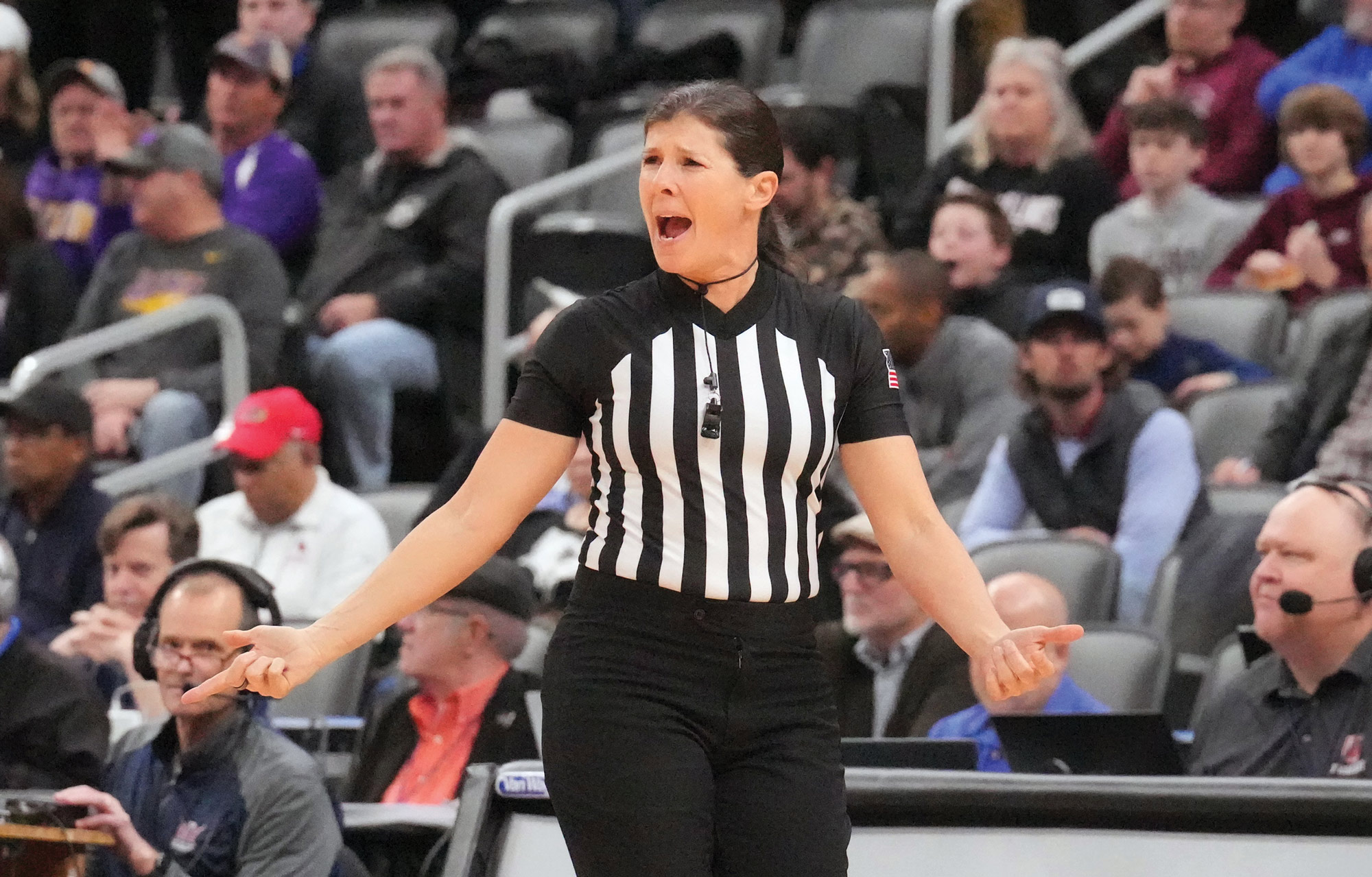
Published on Show Me Mizzou April 27, 2023
Story by Tony Rehagen, BA, BJ ’01
It was the early 1990s, long before college athletes were allowed to profit from their name, image or likeness, and Mizzou triple-jumper Amy Bonner, BHS ’94, needed some supplemental income. “In truth, I needed extra cash for beer and chicken wings,” Bonner says. “I was a physical therapy major, and between practice and studies, I couldn’t take on a full-time job. So, a friend’s father suggested I take up officiating.”
Much to Bonner’s surprise, what started as weekends reffing local rec-league basketball games to fund trips to CJ’s eventually became a pioneering career. In 2021, she became the first woman ever to call men’s hoops in the Big 12 Conference. And last year, she became just the second to ref in the NCAA men’s tournament.
Bonner briefly hung up her whistle upon graduation so she could travel as a physical therapist. But when she returned to hometown Kansas City in 1996, both the Kansas and Missouri state high school athletics associations reached out in need of referees for junior high and high school. Her performance there drew the attention of the National Association of Intercollegiate Athletics (NAIA). Then came the NBA’s developmental G League, then women’s NCAA games, the WNBA and FIBA, the international league, which took her to the Tokyo Olympics in 2020. Bonner has been reffing year-round since 2005. “I thought, ‘I’ll chase these kids around for a couple years and come back to physical therapy,’” she says. “I’m still chasing kids around.”
Then three years ago, the Big 12 invited Bonner into its rotation for men’s games. She says the young players don’t seem to care that she’s a woman (“They just want the call to go their way.”), and even the older coaches have grown comfortable with her as she’s proven herself over the years. And the fans, well, they tend to see red when their team doesn’t get the call no matter who is blowing the whistle. “Contrary to what the public thinks, no one feels worse about a bad call than we do,” Bonner says. “People don’t realize how much work goes into officiating at this level and how competitive we are.”
Bonner says it’s that competitiveness and the adrenaline rush of performing in front of a crowd, much like the rush she felt as a Tiger track athlete, that will keep her in these stripes for the foreseeable future.
To read more articles like this, become a Mizzou Alumni Association member and receive MIZZOU magazine in your mailbox. Click here to join.



